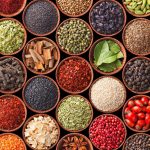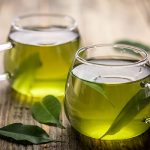
Natural alternatives to OTC drugs for your survival medicine cabinet
Wednesday, August 09, 2023 by Olivia Cook
http://www.naturalnewsherbs.com/2023-08-09-natural-alternatives-to-otc-survival-drugs-cabinet.html

An essential component when it comes to building your preparedness arsenal is stocking up on over-the-counter (OTC) drugs that effectively address a wide range of medical issues – from alleviating allergies and pain, managing respiratory and intestinal infections and tackling various other ailments.
It is worth noting that there are natural alternatives to OTC drugs when SHTF events disrupt their availability. Explore some of the key options you can stockpile.
Analgesics
Affordable and available in every pharmacy, acetaminophen, ibuprofen and aspirin are OTC analgesics that relieve minor pain from headaches, muscle aches, toothaches and menstrual cramps and reduce fever as well. Ibuprofen and aspirin are both classified as nonsteroidal anti-inflammatory drugs (NSAIDs).
Here are some natural alternatives to analgesics:
Ginger. Although this spice is often administered to stop nausea and vomiting, it is also effective when it comes to pain relief. Ginger is both an analgesic that has some powerful anti-inflammatory compounds, and an antioxidant that acts to fight pain on a cellular level. Ginger works for everything from headaches to muscle aches, menstrual cramps to joint pain. Try some ginger tea with honey rather than ibuprofen for your next headache.
Cayenne pepper. These spicy little veggies are one of Mother Nature’s most healing substances and are great at pain relief. The effective ingredient in cayenne pepper, capsaicin, stops the body from making “substance P” – the neuropeptide that sends pain signals to your brain.
Turmeric. Turmeric has become a popular “cure all” but it has actually been used for thousands of years. Turmeric works the same way as cayenne pepper as it stops substance P from reaching the brain and signaling pain. Turmeric is a super powerful anti-inflammatory, as well, so it works well for stopping arthritis and other types of joint pain.
Eugenol. Eugenol is a chemical that is found in cloves, nutmeg, bay leaf, basil and cinnamon. Cloves are a common remedy to stop toothaches, but these can help with other types of pain as well. Eugenol inhibits the COX-2 enzyme, which is the enzyme that initiates the inflammation process. Taking essential oils that contain eugenol can naturally stop inflammation and pain.
Omega-3s. Flax seed oil, cod liver, chia, hemp and fish oils are a very reliable defense against pain, especially for those with neck or back pain, and those suffering from arthritis. The omega-3 fatty acids that are found in these oils break down prostaglandin, which is a pro-inflammatory hormone. Studies have found that consuming omega-3s cut the amount of NSAID use by as much as two-thirds for those with neck or back pain and as much as one-third for those suffering from arthritis pain.
Antibiotics
OTC antibiotic ointments are applied to the site of the injury to prevent infection. However, it’s important to note that triple antibiotic ointment is not sufficient for curing deep infections; oral or intravenous antibiotics are required in such cases. Immediate application of the ointment after an injury significantly reduces the risk of infection. Apply the ointment three to four times a day. (Related: Survival medicine: 14 Natural alternatives to antibiotics.)
Here are some affordable, effective and safe natural antibiotics you can use.
Garlic. Cultures across the world have long recognized garlic for its preventive and curative powers. Research has found that garlic can be an effective treatment against many forms of bacteria, including Salmonella and Escherichia coli. Garlic has even been considered for use against multi-drug-resistant tuberculosis.
Honey. Since the time of Aristotle, honey has been used as an ointment that helps wounds to heal and prevents or draws out infection. The antibacterial effects of honey are usually attributed to its hydrogen peroxide content. But manuka honey can still fight off bacteria, even though it has a lower hydrogen peroxide content. Healthcare professionals today have found it helpful in treating chronic wounds, burns, ulcers, bedsores and skin grafts.
Oregano. Some believe that oregano boosts the immune system and acts as an antioxidant. It may have anti-inflammatory properties.
While researchers have yet to verify these claims, some studies show that oregano is among the more effective natural antibiotics, particularly when it is made into an oil.
Antidiarrheals
Given the high likelihood of food and water contamination issues in the aftermath of a disaster, loperamide is an essential medication to include in your survival medicine cabinet as an antidiarrheal.
The usual dosage is two tablets (4 mg) after the first loose bowel movement, followed by one tablet (2 mg) after each subsequent loose bowel movement. The maximum intake within 24 hours should not exceed four tablets (8 mg). Additionally, consider stocking rehydration salts, a vital mix of electrolytes that can be added to water to restore balance.
Here are some powerful medicinal plants for treating diarrhea that doesn’t require a trip to the pharmacy and OTC medications:
Guava. All varieties of this medicinal plant are an excellent source of vitamin C, dietary fiber, flavonoids, tannins, saponins, phenols, pectin, carotenoids, triterpenes, lectins, essential oils, vitamin A and fatty acids. The leaves, fruits and bark of the guava tree have been considered effective for medicinal purposes – traditionally for treating gastroenteritis, diarrhea and other digestive problems has been proven in various clinical studies. The efficacy of guava leaf extract in diarrhea, gastroenteritis and dysentery treatment is also attributed to its antibacterial properties.
Guava leaves extract also helps to soothe the intestinal smooth muscle, thus hindering the chemical processes present in diarrhea. This soothing nature of the guava leaves extracts facilitates the easy re-absorption of water in the intestines.
Soursop. This evergreen has been recorded as among the list of valuable fruits that are highly beneficial to human health. Both the soursop drink and pulp have been reported to contain reasonable amounts of vitamins, minerals and nutrients that are health-promoting. Both the leaves, stems and barks are equally medicinal in nature.
The fruit and leaves can be used for treating gastrointestinal diseases such as stomach pains and diarrhea. The leaves can be squeezed and decocted in hot water, which is taken as an herbal remedy for stopping diarrhea.
Yarrow. This perennial plant that produces one or multiple stems contains tannins – thus effective for stopping diarrhea and dysentery. Yarrow’s sterile and anti-inflammatory features make it effective for treating diarrhea. The yellow yarrow flowers can be infused and taken as a tea.
Visit EmergencyMedicine.news for more stories like this.
Watch the following video to learn about medicines worth their weight in gold post-collapse.
This video is from the JRoseland channel on Brighteon.com.
More related stories:
Herbal medicine cabinet: 9 Herbs for wound care.
6 Herbal salves for your prepper medicine cabinet.
6 Tree bark remedies you can use as survival medicine.
Sources include:
RECENT ARTICLES


12 Useful medicinal herbs to grow in your home garden
By Zoey Sky

A dash of POISON: Major spice brands found to contain HEAVY METALS
By Ramon Tomey

Chinese medicinal herb astragalus found to reduce inflammation and improve immunity in heart attack patients
By Zoey Sky

Why people love tea: A look at some herbal tea recipes for mild depression
By Olivia Cook
COPYRIGHT © 2017 NATURAL NEWS HERBS


